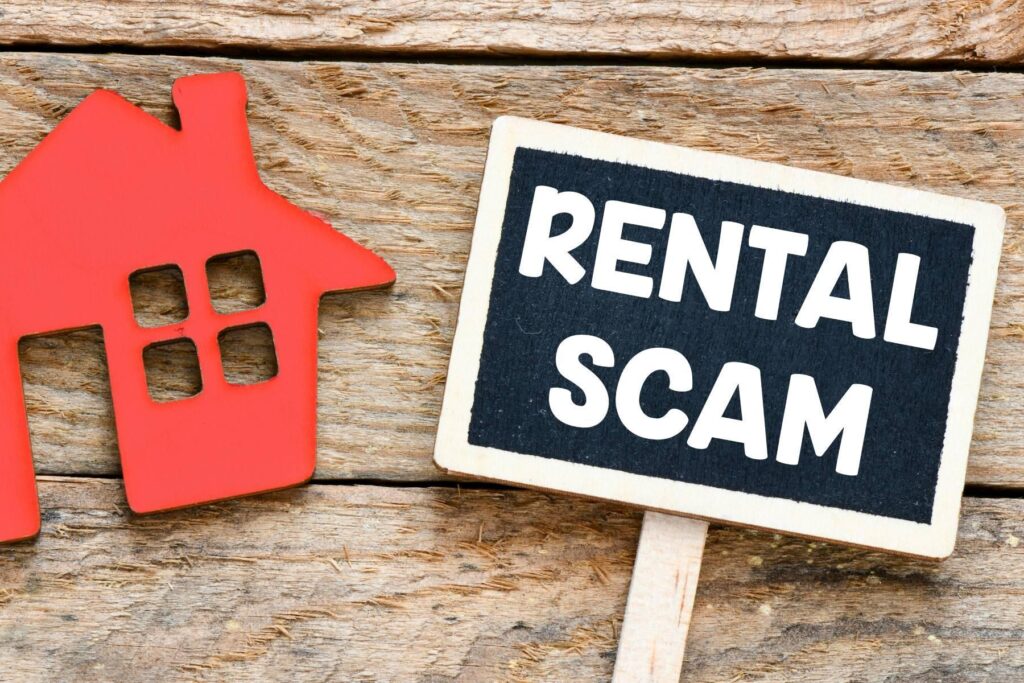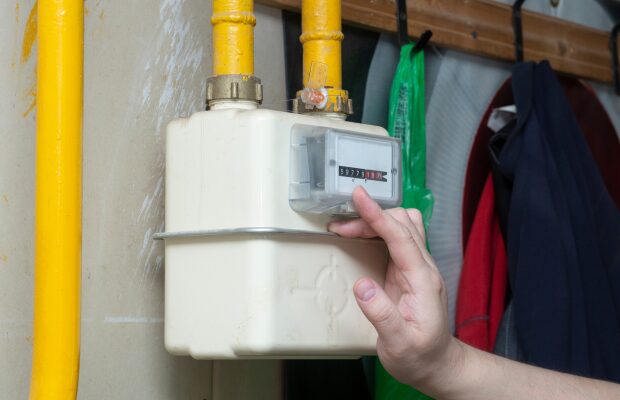It’s an unfortunate fact of life that where there’s money, there are scammers.
And because a tenant’s search for a new property almost always starts online, many are being targeted by fake landlords and fake property listings.
The pandemic, meanwhile, has sparked a large rise in rental fraud, with Action Fraud reporting more than 4,000 incidents totally more than £6million between February 2020 and February 2021.
It’s possible to avoid rental scams, however, if you know what to look out for.
Here, we’ll reveal the most common techniques used by rental scammers and give you some great advice on how to avoid becoming a victim…
How do you know if a rental property is legit?
The best way to be sure that a property being marketed for rent is legitimate is by renting through a local letting agent.
Only registered letting agents can market properties for rent on the main property portals Rightmove, Zoopla or OnTheMarket.
So, if you rent a property advertised on one of these through a local agent, you can be certain the property is legitimate.
Alternatively, visit your local agent in person rather than online and discuss your rental options with them face to face.
Types of rental scams you should be aware of
Most rental scams nowadays take place online.
But there are also more traditional scamming methods you should be aware of…
1. Fake property listings
Although only registered letting agents can post properties for rent on portals like Rightmove, Zoopla and OnTheMarket, anyone can market a rental property on other online platforms.
These include:
• Gumtree
• Facebook Marketplace
• Craig’s List
Some scammers will also use social media platforms like Instagram and Twitter.
Scammers often either list properties that don’t exist, or they steal pictures and details from legitimate listings on letting agent websites to create their own bogus advert on websites like Gumtree.
They then request the tenant makes a payment to ‘secure’ the property, or sometimes even insist on a deposit or first month’s rent, before disappearing with the cash.
2. The fake agent
More brazen property scammers will actually show a potential tenant around a property, pretending to be either the landlord or a letting agent.
They then request a deposit and month’s rent up front in cash and disappear before the tenant realises they’ve been scammed.
3. Fake overseas landlords
Scammers posing as foreign landlords often use the fact they are supposedly based abroad to coax tenants into transferring money in advance of viewing a property – which most of the time doesn’t exist.
4. Phishing scams
Phishing is where scammers send out hundreds of emails purporting to be from an official source like a letting agent or big company.
These emails will often tell you that you owe money, such as a deposit or advance rent, and to pay immediately.
There may be a link to click where you make a payment or a phone number to call to pay a holding deposit.
5. Bogus newspaper listings
Although the vast majority of tenants search online for a property to rent, some scammers use fake newspaper or noticeboard listings to entice would-be tenants.
They then ask for a holding deposit to be paid over the phone and vanish into thin air.
Five things you can do to avoid house rental scams
There are steps you can take to help ensure you don’t become the victim of a rental property scam…
1. Never send money up front
Almost all rental scams in the UK rely on potential tenants sending money up front to ‘hold’ or ‘secure’ a property.
Requesting a transfer of funds to hold a room or property before you’ve viewed it is not standard practice by legitimate landlords or letting agents, so if you’re asked to do this, you should be wary.
2. Look out for fake listings
If you’re looking online for a property to rent, and not through a letting agent, look out for some tell-tell signs that a listing is fake. Those might include:
• Listings with no photographs
• Badly written listings
• Listings where the monthly rent is lower than market value
• Listings where the advertiser asks for money before a viewing
3. Always view a property
It might seem obvious to view a property before committing to renting it, but scammers will often have a whole host of ready-made excuses for why a viewing isn’t possible.
Those excuses could include:
• The ‘landlord’ being overseas
• The property is undergoing maintenance
• The current tenants aren’t permitting viewings
Even if the property looks amazing on its listing, or you’re worried it will be let to someone else if you don’t commit, never part with any money until you’ve actually seen what you’ll be renting.
4. Do your research
The best way to establish whether or not a rental property listing is genuine is to meet the landlord or agent behind the listing.
If you’re looking at a property listed by a letting agent, rather than emailing or calling the number on the listing, pop into the branch instead to be certain you’re not dealing with someone posing as an agent.
And if the listing has been posted by an individual, insist on meeting them when you view the property and try to speak to the existing tenants – if they actually exist.
5. Rent through a local agent
By far the best way to ensure you avoid a potential rental scam is to rent your property through a letting agent.
Although scammers sometimes impersonate agents, by searching for a property on Rightmove, Zoopla, OnTheMarket or the agent’s own website, you can be as sure as it’s possible to be that the listings you’re looking at are genuine.
And if you’re still not sure, you can either phone the agent or pop into the branch to clarify everything in person.
Further reading…
• A guide to landlord-friendly decorating








